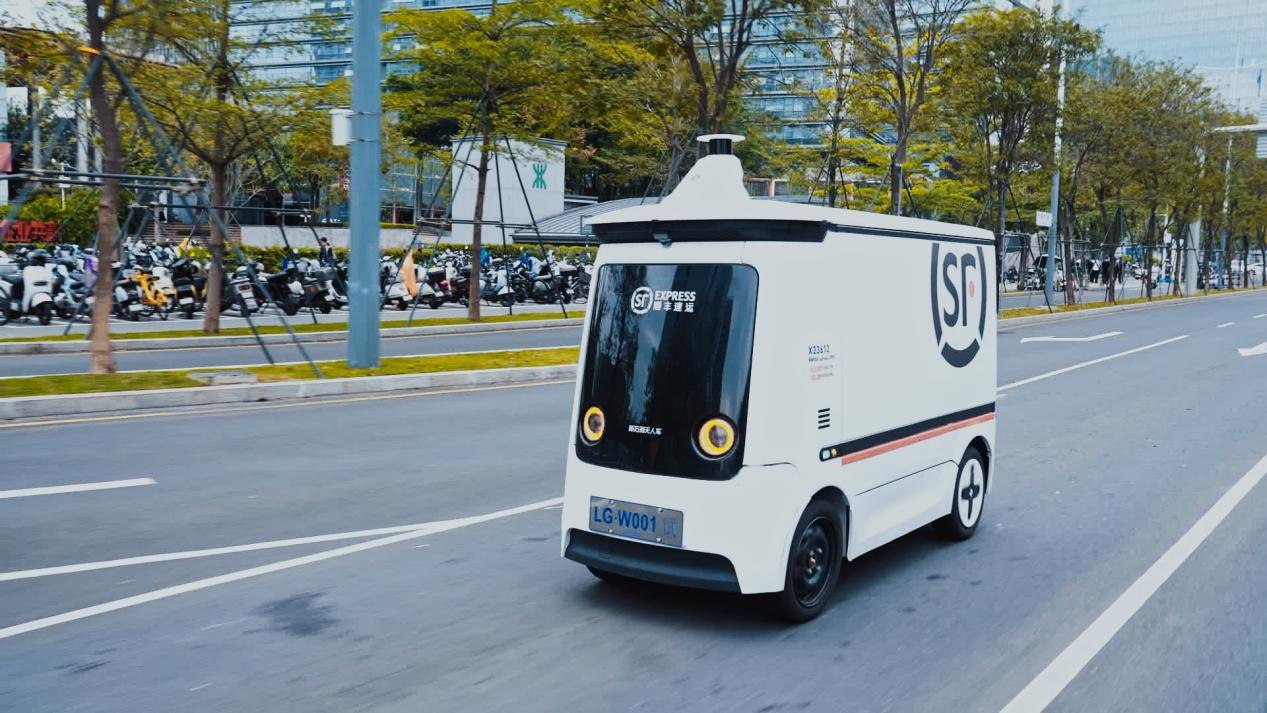
With technological innovation as a catalyst, Shenzhen is embracing autonomous driving to fuel industrial advancement and urban development, which has enhanced logistics efficiency and improved safety for elderly workers.
By the end of June, the city had launched 10 cross-district routes for specialized driverless vehicles to deliver goods, food, and engage in other functions, signaling the inception of a citywide intelligent distribution network based on autonomous driving.
In light rain, a driverless delivery vehicle slowly arrived at an intersection in Shenzhen’s Longgang district, turning right according to the guidance of traffic lights. Upon encountering a car making a U-turn, it promptly halted to prevent a collision. After confirming a safe distance to the car was being maintained, it restarted and moved away.
READ MORE: Self-driving to revolutionize transportation
The vehicle is operated by SF Express, a Shenzhen-based logistic giant. Logistics was listed among the first batch of application scenarios for driverless technology in Longgang. The company now operates 22 such vehicles in the region.
According to Huang Haiwen, a manager of SF Express’ driverless logistics vehicle program, the car reduces the need for manual transfers between distribution centers and customers.
It can deliver goods containing 300 orders at a time, and enhance efficiency by 20 percent. This alleviates the workload for delivery personnel. During this year’s 618 e-commerce festival, the company processed up to 80,000 delivery orders a day across Shenzhen.
Huang said that the company initiated the program at the beginning of last year, and currently operates 80 such vehicles in Nanshan, Baoan, Longgang, and Pingshan districts, with the largest fleet in Longgang.
These vehicles mainly operate in residential areas and office buildings. The company hopes to expand their use to campuses, hospitals, and commercial districts.
READ MORE: AI expected to accelerate self-driving tech
In addition to SF Express, Longgang district is collaborating with other logistics leaders on self-driving deliveries. This service has expanded to include fresh foods, auto components, pharmaceuticals, and industrial materials.
Meanwhile, the district has employed four self-driving garbage transport vehicles to improve municipal service in pilot areas. Previously, garbage in roadside trash cans was transported from the streets to transfer stations by sanitation workers in tricycles. Currently, self-driving vehicles transport 300 to 400 garbage bags per day in these areas.
Xu Yaoshan, a manager of the pilot urban service program, said that amid an aging workforce, employing technology for tasks that involve traffic risks can enhance the protection of elderly workers and improve road safety.


